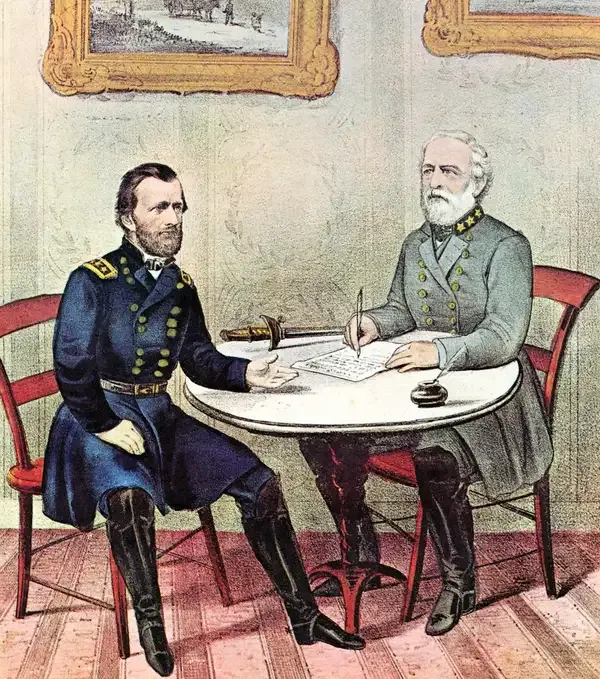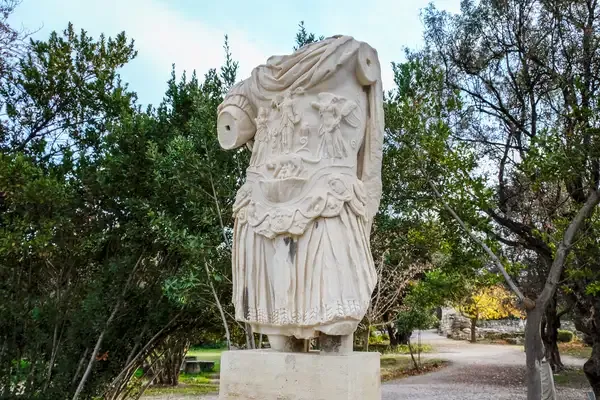150th Anniversary: Lee Surrenders to Grant
The 150th anniversary of Lee's surrender to Grant commemorates a pivotal moment in American history, marking the end of the Civil War. On April 9, 1865, Confederate General Robert E. Lee surrendered to Union General Ulysses S. Grant at Appomattox Court House in Virginia. This event symbolizes the conclusion of four years of intense and bloody conflict, leading to the preservation of the United States as a unified nation. The surrender laid the groundwork for Reconstruction and the long, challenging process of healing and rebuilding.

The 150th anniversary of Lee's surrender to Grant is a significant milestone in American history, marking the end of the Civil War and the beginning of a new era. This pivotal moment took place on April 9, 1865, at Appomattox Court House in Virginia, where General Robert E. Lee, the commander of the Confederate Army, surrendered to Union General Ulysses S. Grant. This event is not just a historical marker; it represents the culmination of years of conflict and the hope for reconciliation and healing in a divided nation.
The Significance of Lee's Surrender
Lee's surrender is often viewed as the turning point that led to the effective end of the Civil War. After four years of brutal warfare, the surrender symbolized the defeat of the Confederacy and the preservation of the Union. The implications of this event were profound, affecting countless lives and shaping the future of the United States.
Understanding the importance of this anniversary requires a closer look at the context of the Civil War. The conflict was rooted in deep-seated issues such as slavery, states' rights, and economic disparities. The surrender at Appomattox was not just a military defeat for the Confederacy; it was a moment that would redefine the nation.
Key Figures: Lee and Grant
General Robert E. Lee and General Ulysses S. Grant were two of the most prominent military leaders in American history. Their contrasting backgrounds and leadership styles played a significant role in the outcome of the Civil War. Lee was celebrated for his tactical brilliance and ability to inspire his troops, while Grant was recognized for his relentless pursuit of victory and strategic foresight.
The meeting between these two commanders on that fateful day was laden with tension yet marked by mutual respect. Grant's terms of surrender were generous, allowing Confederate soldiers to return home with their personal possessions and horses, which was pivotal in fostering a spirit of reconciliation.
The Historical Context
The backdrop of the Civil War is essential for understanding the significance of Lee's surrender. The war began in 1861 after decades of escalating tensions between the North and South. As battles raged across the country, both sides suffered immense losses, leading to a profound impact on American society.
By 1865, the Confederate Army was in a dire situation. With dwindling resources and troop numbers, Lee's decision to surrender was not only a strategic choice but also a realization of the inevitable outcome of the war. This surrender would eventually pave the way for the Reconstruction era, a challenging period aimed at rebuilding the nation and integrating formerly enslaved individuals into society.
Commemorating the 150th Anniversary
The 150th anniversary of Lee's surrender provides an opportunity for reflection and education. Various events and programs are being organized to honor this historic milestone. These events include reenactments, educational seminars, and community discussions aimed at fostering a deeper understanding of the Civil War and its lasting effects.
In addition to commemorative events, resources such as books, documentaries, and online archives are available for those interested in learning more about this critical moment in history. Educational institutions and historical societies are also playing a crucial role in ensuring that the lessons of the past are not forgotten.
Impact on Modern Society
The legacy of Lee's surrender extends beyond the battlefield. It has influenced contemporary discussions about race, equality, and national identity. As we reflect on this anniversary, it is essential to recognize the ongoing struggles for civil rights and justice in America.
Understanding the Civil War and its aftermath allows us to engage in meaningful conversations about our nation's history and the challenges we face today. The themes of reconciliation and unity that emerged from Lee's surrender continue to resonate, reminding us of the importance of dialogue and understanding in a diverse society.
Conclusion
The 150th anniversary of Lee's surrender to Grant is a moment to honor the past while looking toward the future. As we commemorate this significant event, we are reminded of the sacrifices made by countless individuals during the Civil War and the ongoing journey toward healing and unity in our nation. By reflecting on the lessons of history, we can strive to build a more inclusive and equitable society for all.
In summary, the surrender at Appomattox Court House represents more than just a military defeat; it is a profound moment in American history that continues to shape our national narrative. As we observe this milestone, let us commit to understanding our past and applying its lessons to the challenges we face today.












